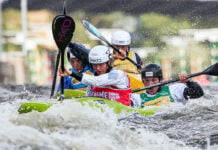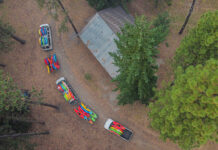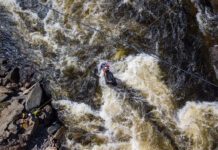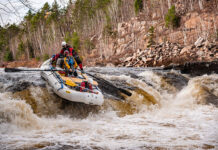I am a big fan of racing. So, of course, I’m excited kayak cross will be appearing at the Paris 2024 Summer Olympics. It’s the newest addition to the Olympics whitewater events lineup.
The secret key to kayak cross success at the Olympics
If you’ve somehow escaped the most exciting news in the slalom community in the last decade, here’s what you need to know about kayak cross: Four paddlers descend an elevated ramp in identical plastic kayaks and race each other down an artificial course. There are a maximum of six downstream gates and two upstream gates. All athletes are required to complete a roll in a defined area. Collisions ensue. It’s all over in about a minute.
Fast, fun, chaotic and more television-friendly than traditional slalom events, which feature one paddler on course racing the clock. There’s a lot of potential to turn kayak cross’ Olympic debut into a wider phenomenon for recreational paddling worldwide.
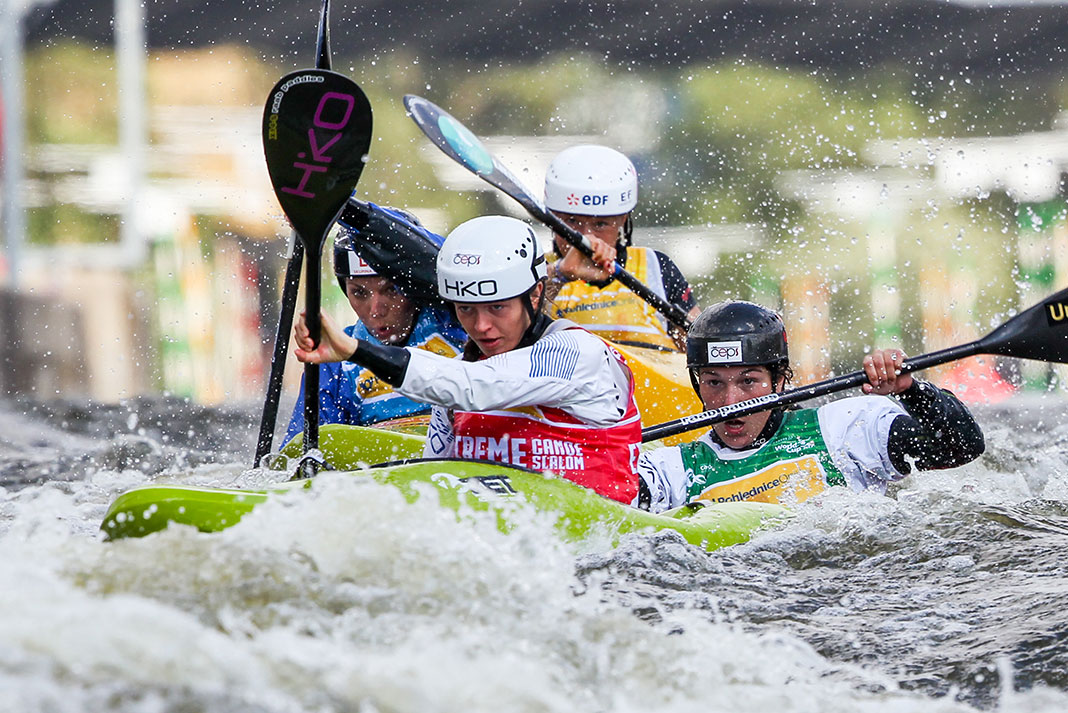
The thing with kayak cross, and the more loosely structured boatercross—which is focused simply on getting down the river first, gates be damned—is that the fastest paddler wins. Self-evident, perhaps, and difficult to argue. But watch any of the Pan American Games kayak cross-qualifier runs or the North Fork Championship BoaterX finals, and it is immediately apparent the winning paddlers just plainly have a stronger and more precise forward stroke than the fourth-place paddlers.
Success hinges on a simple technique
Yes, the forward stroke. The very thing most of us spend exactly three minutes learning our first time in a kayak before we move on to the so-called real parts of kayaking whitewater. While the forward stroke is a technique most river runners are lazy about improving, it’s a technique World Cup slalom paddlers spend their lives perfecting.
I predict a convergence between the slalomers’ kayak cross and the downriver boatercross in the near future. And the slalom paddlers will clean up. Easily.
It reminds me of the early days of mountain bike racing when European and North American racing styles collided in the first world championships in Durango, Colorado, in 1990. The two styles had developed independently of one another. The North American mountain biking scene was more focused on the thrill of freeriding, whereas the European scene was more influenced by traditional cycling disciplines and related technical skills. The Euros definitively stomped it in the competition. It was a bit of an outrage at the time that they stole our sport out from under us. Still, it was a defining moment for mountain biking, and it birthed a fusion of the styles evolving the sport.
Mountain biking became an Olympic event in 1996. Since then, a North American man has never won an Olympic medal in mountain bike, and the female list has just a sprinkling of hometown silvers and bronzes. I think the same future awaits North American kayak cross athletes if our competition culture does not rise to support the dedication and precision required of these individual sports.
Beyond the forward stroke
Like I said, I am a fan of racing and see immense value in the pursuit of competition regardless of winning. If kayak cross motivates recreational paddlers to take up training and strive for mastery of the sport, it will be a net gain. If it motivates local clubs to organize races on class III rivers, I’m all in. I have experienced competition as a community builder, a great excuse to travel and a social outlet.
My fear is North Americans will write kayak cross off like we did Olympic whitewater slalom and like we did with mountain bike cross-country racing. These events are seen to belong to someone else and, therefore, only marginally accessible even to those interested in pursuing them. But I hope many others will be inspired to geek out on technique and the forward stroke. By embracing a more competitive and skills-focused mentality here in North America, kayak cross could take us someplace new and grow into something much bigger than just finding out who can go fastest.
Jeff Jackson is a risk management consultant and professor of outdoor adventure at Algonquin College. Alchemy first appeared in the Summer 2000 issue of Rapid.
First the forward stroke, then the world. Kayak cross will have its Olympic debut this summer in Paris. | Feature photo: Balint Vekassy



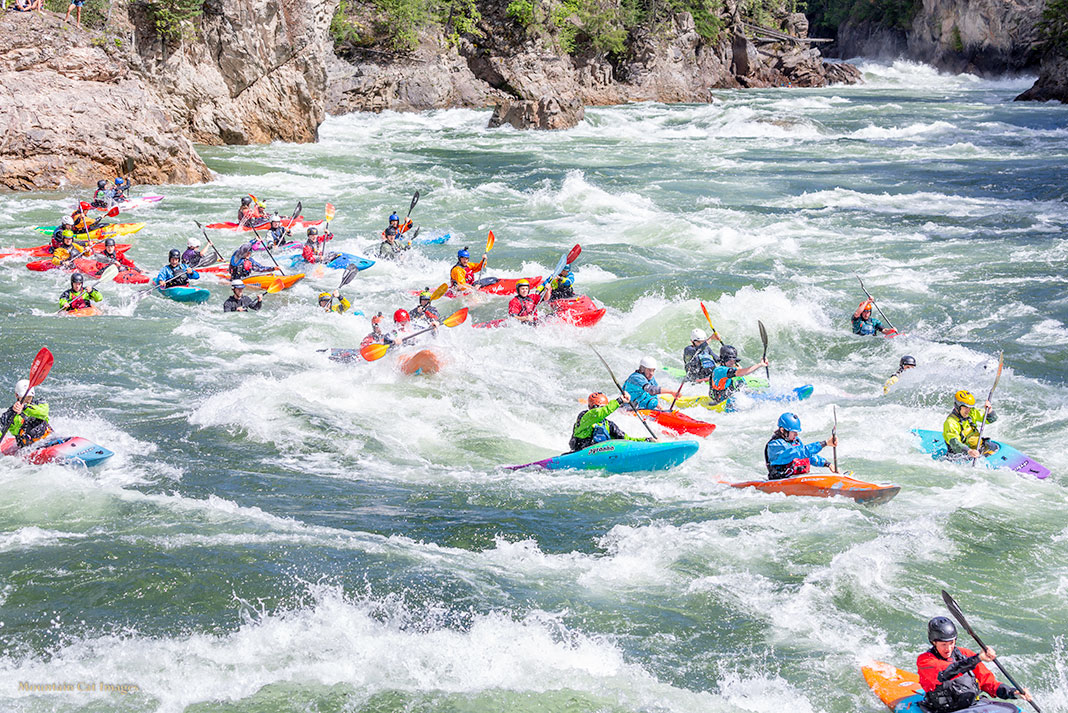
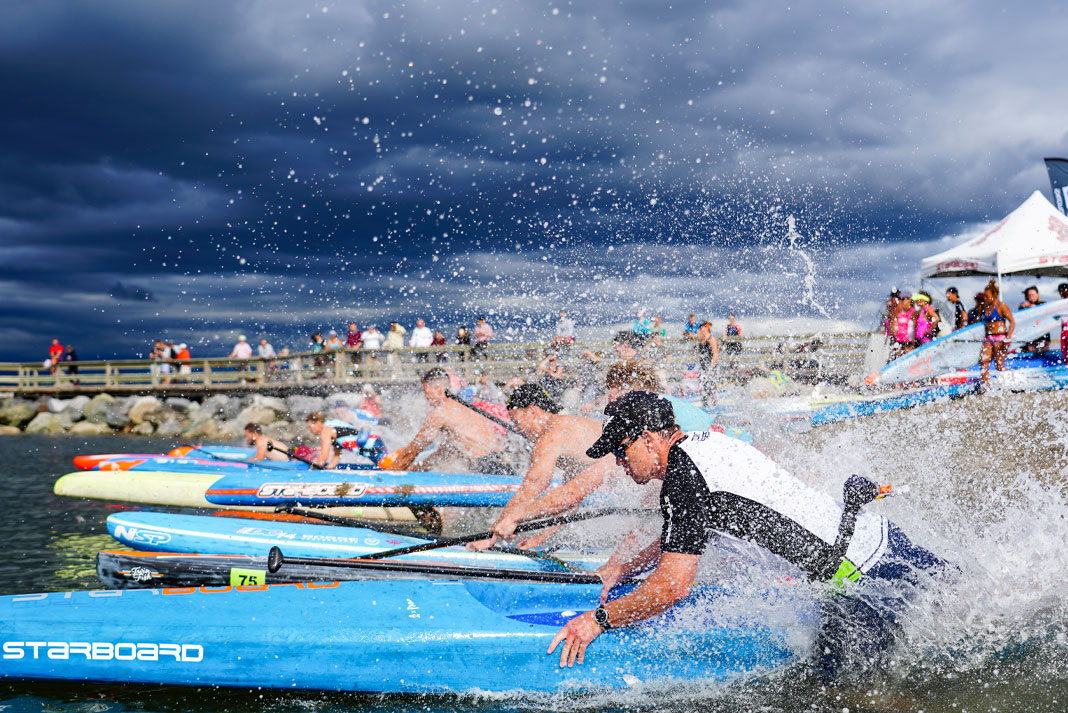
 This article was first published in the Spring 2024 issue of Paddling Magazine.
This article was first published in the Spring 2024 issue of Paddling Magazine. 